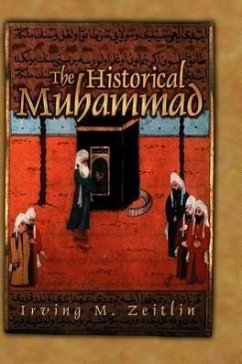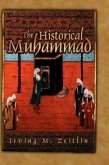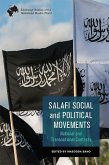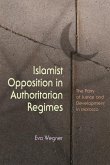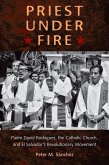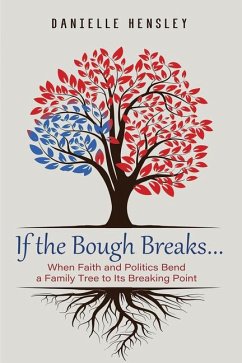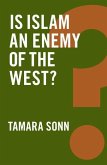Major new book by one of the world's leading scholars in the field of religion
Seeks to place the life of Muhammad in the social, historical and religious context of his time, and thereby shed light on the birth of Islam and the role played by its extraordinary founder
A balanced critical comparison of alternative and even conflicting points of view regarding Muhammad's vision and process in establishing the Islamic religion and the Muslim community
Highly accessible and illuminating account of the Prophet Muhammad and the foundation of the Muslim religion
In his quest for the historical Muhammad, Zeitlin's chief aim is to catch a few reliable glimpses of the birth of Islam and the role played by its extraordinary founder. Islam, as its Prophet came to conceive it, was a strict and absolute monotheism. How Muhammad had arrived at this view is not a problem or question for devout Muslims, who believe that the Prophet had received a revelation from Allah or God, mediated by the Angel Gabriel. For scholars, however, interested in placing Muhammad in the historical context of the 7th-century Arabian Peninsula, the source of the Prophet's inspiration is, in fact, a significant and even momentous question. For it is apparent that the two earlier monotheisms, Judaism and Christianity, constituted a definite and influential presence in the Hijaz, the region comprising Mecca and Medina. Indeed, Jewish communities were salient in the region, especially in Medina and in other not-too-distant oases. Moreover, in addition to the presence of Jews and Christians, there appears to have existed a third category of individuals, going by the name of Hanifs, who had grown dissatisfied with their polytheistic beliefs and who developed vague monotheistic ideas. Zeitlin tries to assess the extent to which these various religious influences shaped the emergence of Islam and the development of the Prophet's beliefs. Zeitlin also seeks to understand how it was that the process set in motion by Muhammad led, not too long after his death, to the establishment of a world empire. In a counter-factual thought experiment, he proposes that if Muhammad had remained in Mecca and never had migrated to Medina, Islam either would have remained a small sect or would have been absorbed by the earlier monotheisms, thus disappearing altogether.
Hinweis: Dieser Artikel kann nur an eine deutsche Lieferadresse ausgeliefert werden.
Seeks to place the life of Muhammad in the social, historical and religious context of his time, and thereby shed light on the birth of Islam and the role played by its extraordinary founder
A balanced critical comparison of alternative and even conflicting points of view regarding Muhammad's vision and process in establishing the Islamic religion and the Muslim community
Highly accessible and illuminating account of the Prophet Muhammad and the foundation of the Muslim religion
In his quest for the historical Muhammad, Zeitlin's chief aim is to catch a few reliable glimpses of the birth of Islam and the role played by its extraordinary founder. Islam, as its Prophet came to conceive it, was a strict and absolute monotheism. How Muhammad had arrived at this view is not a problem or question for devout Muslims, who believe that the Prophet had received a revelation from Allah or God, mediated by the Angel Gabriel. For scholars, however, interested in placing Muhammad in the historical context of the 7th-century Arabian Peninsula, the source of the Prophet's inspiration is, in fact, a significant and even momentous question. For it is apparent that the two earlier monotheisms, Judaism and Christianity, constituted a definite and influential presence in the Hijaz, the region comprising Mecca and Medina. Indeed, Jewish communities were salient in the region, especially in Medina and in other not-too-distant oases. Moreover, in addition to the presence of Jews and Christians, there appears to have existed a third category of individuals, going by the name of Hanifs, who had grown dissatisfied with their polytheistic beliefs and who developed vague monotheistic ideas. Zeitlin tries to assess the extent to which these various religious influences shaped the emergence of Islam and the development of the Prophet's beliefs. Zeitlin also seeks to understand how it was that the process set in motion by Muhammad led, not too long after his death, to the establishment of a world empire. In a counter-factual thought experiment, he proposes that if Muhammad had remained in Mecca and never had migrated to Medina, Islam either would have remained a small sect or would have been absorbed by the earlier monotheisms, thus disappearing altogether.
Hinweis: Dieser Artikel kann nur an eine deutsche Lieferadresse ausgeliefert werden.
"Zeitlin's approach is novel andintriguing."
Journal of the Royal Anthropological Institute
"This book will be of value to serious students of Islamic historyas well as educated readers generally. Both groups will be wellable to navigate the historical and historiographical landscapes ofthe rise of Islam - with the foundational qualities thatenabled it to develop into a world religion. The pursuit ofcertainty in discerning and understanding Muhammad'shistorical biography and the rise of his religious movement isongoing, and Irving Zeitlin has provided a clear, balanced, andplausible account using traditional sources and modern scholarlytheories and interpretations."
Frederick M. Denny, University of Colorado at Boulder
"It is very important for Muslims and non-Muslims alike tounderstand the importance of the Prophet Muhammad because he is socentral to Islam. The Historical Muhammad contributessignificantly to the discussion of the life of the Prophet, asubject highly relevant to our time."
Akbar S. Admed, American University, WashingtonDC
Journal of the Royal Anthropological Institute
"This book will be of value to serious students of Islamic historyas well as educated readers generally. Both groups will be wellable to navigate the historical and historiographical landscapes ofthe rise of Islam - with the foundational qualities thatenabled it to develop into a world religion. The pursuit ofcertainty in discerning and understanding Muhammad'shistorical biography and the rise of his religious movement isongoing, and Irving Zeitlin has provided a clear, balanced, andplausible account using traditional sources and modern scholarlytheories and interpretations."
Frederick M. Denny, University of Colorado at Boulder
"It is very important for Muslims and non-Muslims alike tounderstand the importance of the Prophet Muhammad because he is socentral to Islam. The Historical Muhammad contributessignificantly to the discussion of the life of the Prophet, asubject highly relevant to our time."
Akbar S. Admed, American University, WashingtonDC

